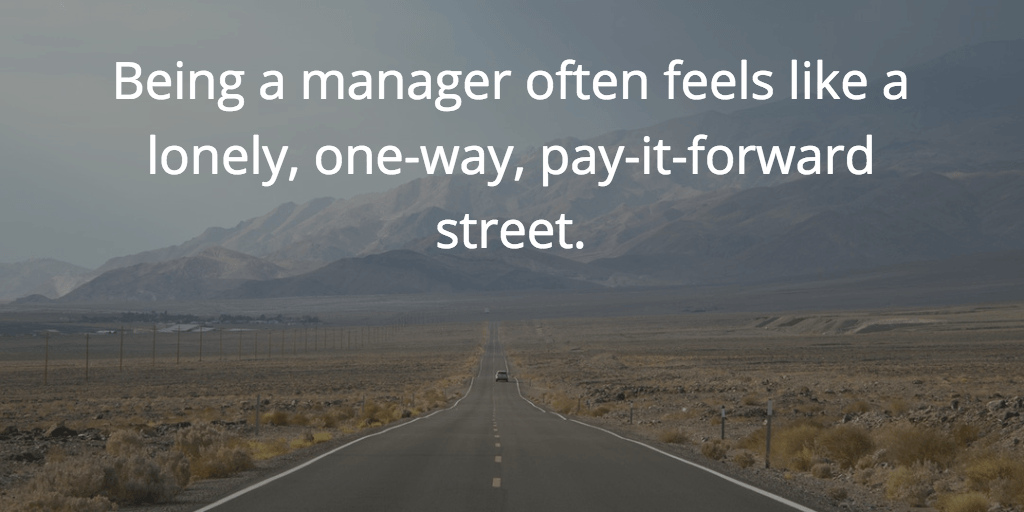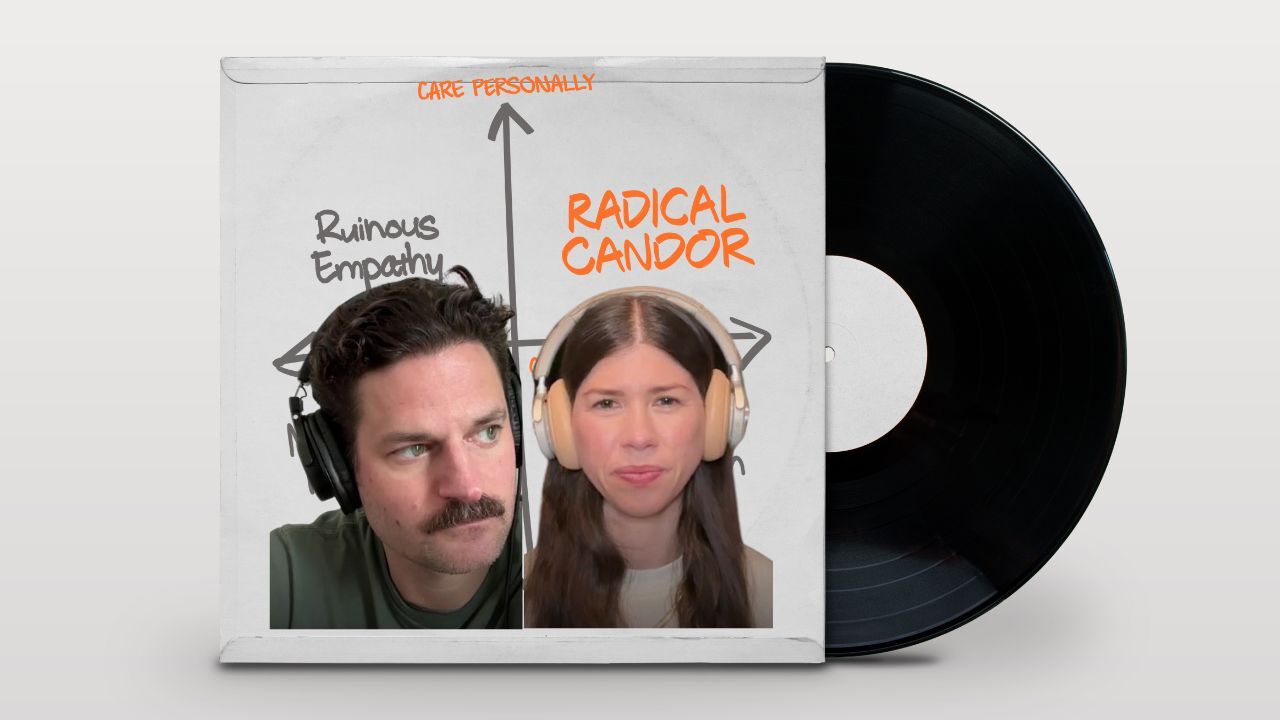What's the Ideal Manager-Employee Relationship?
You may have seen me featured as "The Candid Boss" for The Muse, an online career resource destination. One of the questions I am often asked is, can...
4 min read
Radical Candor Jul 28, 2025 12:20:13 PM
.png)
This post about rituals has been edited by Radical Candor Podcast Producer Brandi Neal and adapted from the transcript of season 7, episode 30 of the Radical Candor podcast.
Rituals aren’t just for religious ceremonies or morning coffee routines—they’re powerful emotional tools that shape our well-being, deepen our relationships, and infuse our work with meaning. In this conversation, Harvard Business School Professor Michael Norton and Radical Candor Principal Coach & Podcast Host Amy Sandler unpack the science behind rituals and why embracing them might be the most human—and productive—thing we can do.
In a world that prizes productivity and innovation, it may seem counterintuitive to focus on something as old-fashioned as rituals. But according to Michael Norton, professor at Harvard Business School and author of The Ritual Effect: From Habit to Ritual, Harness the Surprising Power of Everyday Actions, rituals are far from outdated. In fact, they may be the emotional glue that helps us navigate the chaos of modern life—at home and at work.
Norton joined Amy Sandler, Radical Candor Principal Coach & Podcast host, to discuss his groundbreaking research on how rituals—defined as everyday actions imbued with emotion—can improve well-being, deepen relationships, and build more meaningful workplaces.
Norton didn’t always believe in the power of rituals. “I'm a very important Harvard Business School professor,” he joked. “There are topics that sound like business topics, like accounting, and then there are ones that don’t—like ritual.” But after becoming a father and struggling with the stress of bedtime routines, he noticed something profound.
“We didn’t think of it as a ritual, but we were doing the same things in the same order every night: reading books, playing songs, lining up stuffed animals. It became this elaborate, specific process. If we got it wrong, we would start over. That’s when I realized—this is a ritual,” he said.
.png?width=1600&height=900&name=Rituals%20(1).png)
So what makes a ritual different from a habit? According to Norton, it’s all about emotional meaning.
“Habits are often devoid of emotion—just tasks you check off. But rituals make you feel something. If you change the order of how you get ready in the morning and it feels off all day, you’re probably performing a ritual, not just a habit.”
Sandler, who is also a meditation teacher, connected this to mindfulness. “It’s about being present, but not just cognitively—absorbing yourself in an action, similar to a flow state,” she said.
Even transitions—like ending the workday—have taken on ritualistic form. “One guy biked from one side of his apartment to the other to simulate his commute,” Norton recalled. “It may sound odd, but it helped him mentally separate work from personal life.”
Norton’s research shows that rituals help people manage emotions—whether it’s calming down before a stressful meeting or amping up before a big presentation.
“We use rituals to try to change how we feel. They're emotion generators. Even awe, one of the hardest emotions to experience, is often sparked by ritual,” he explained.

Although rituals often arise organically in families or faith communities, they are just as powerful in professional settings. “Teams that create their own rituals—like having lunch together daily with each member responsible for a different day—report higher levels of meaning at work,” Norton said.
But he cautioned leaders against forcing rituals. “Please don’t watch a TED Talk and show up Monday morning mandating a new team ritual,” he warned. “Instead, give teams the space to create their own based on shared values. Ask: What matters to us? What practices reflect that?”
Sandler agreed, noting that rituals should align with culture. “If gratitude is a value, how can we express that as a team? Maybe it's sharing what we’re thankful for before meetings.”
The COVID-19 pandemic disrupted nearly every ritual we had, especially in the workplace. But it also led to creative adaptations. One team Norton studied began each virtual meeting by clicking an emoji to express how they were feeling. “They didn’t do it in person, but Zoom made it easier. It became a ritual of emotional check-in,” he said.
Even transitions—like ending the workday—have taken on ritualistic form. “One guy biked from one side of his apartment to the other to simulate his commute,” Norton recalled. “It may sound odd, but it helped him mentally separate work from personal life.”

Norton emphasized that effective rituals are not one-size-fits-all. “If we had found that six claps and three stomps create meaning, that’d be great. But that’s not how humans work,” he said. What matters is personalization and intent. “Rituals should reflect what’s meaningful to you or your team.”
In his own academic group, creativity is a core value. So they host a “random ideas” segment where team members brainstorm absurd project ideas just for fun. “We never actually pursue them, but it reinforces our value of creativity,” Norton said.
To help people identify and evaluate their own rituals, Norton created a free Ritual Quiz at MichaelNorton.com. “It’s not about adding 19 new rituals to your life. It’s about recognizing the ones you already have and owning them.”
Sandler summed it up best: “All of this is about bringing a little more intentionality and even joy into our days.”
So whether you're knocking on wood, syncing up with colleagues before a meeting, or simply savoring your morning coffee in a specific mug, take a moment to notice: you might just be participating in a ritual that’s grounding your day—and enriching your life.
If you understand the importance of receiving feedback in the workplace, then you need The Feedback Loop (think Groundhog Day meets The Office), a 5-episode workplace comedy series starring David Alan Grier that brings to life Radical Candor’s simple framework for navigating candid conversations.
You’ll get an hour of hilarious content about a team whose feedback fails are costing them business; improv-inspired exercises to teach everyone the skills they need to work better together; and after-episode action plans you can put into practice immediately to up your helpful feedback EQ.
We’re offering Radical Candor readers 10% off the self-paced e-course. Follow this link and enter the promo code FEEDBACK at checkout.

You may have seen me featured as "The Candid Boss" for The Muse, an online career resource destination. One of the questions I am often asked is, can...

By Indiana Lee, a freelance journalist specializing in business operations, leadership, communication, and marketing who regularly contributes...

Edited By Brandi Neal. When Chloé van Bergen joined Secretly Group in the middle of the pandemic, she faced legacy systems, cultural barriers, and...